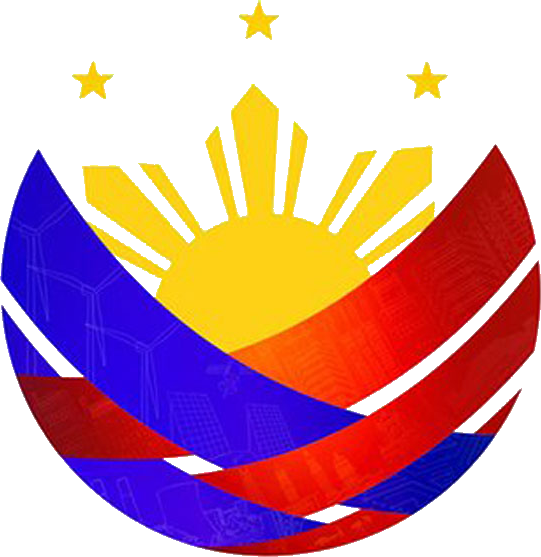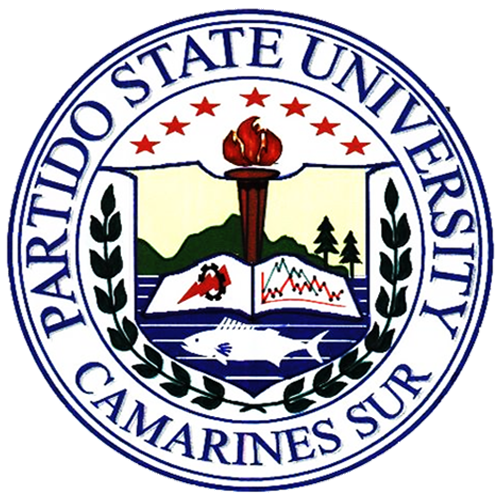To educate and expose the community to the relevant knowledge and skills in ethnobotanical studies, the Partido State University, in collaboration with Sorsogon State University, conducted the Lecture-cum-Workshop on Ethnobotanical Studies: Ties between Humans and Plants as a Step towards Conservation and Restoration Strategies on April 25-27, 2024 at Partido State University College of Sustainable Communities and Ecosystems (Caramoan Campus).
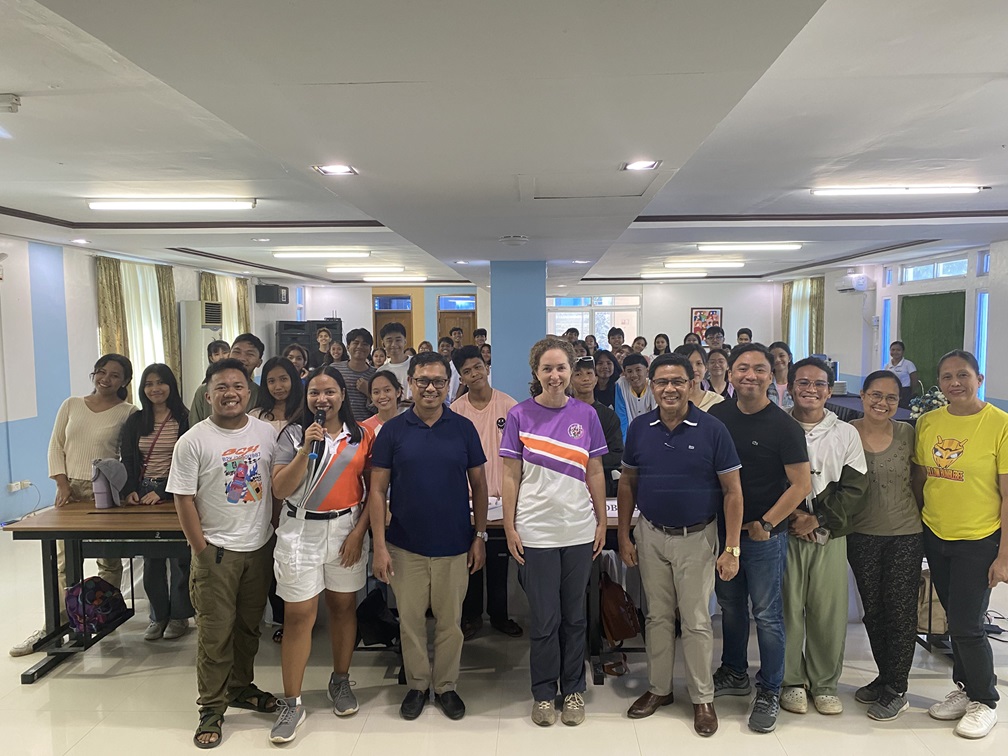
Forty-nine participants, composed of students and teachers from secondary and tertiary educational institutions in the municipality of Caramoan, attended the said event. The three-day lecture-cum-workshop was conducted to provide participants with general and specific knowledge of the concept, principles, history, importance, types, application, research trends, and whatnots of ethnobotanical studies and their roles in conservation strategies.
Dr. Georgie Hart-Fredeluces (International Visiting Professor from Idaho State University, USA), together with Dr. Richard D. Dumilag (Professor) and Mr. Clister Panganiban and Jomari Dig (University Research Associates) from Sorsogon State University facilitated the event filled with lectures, workshops, and fieldwork.
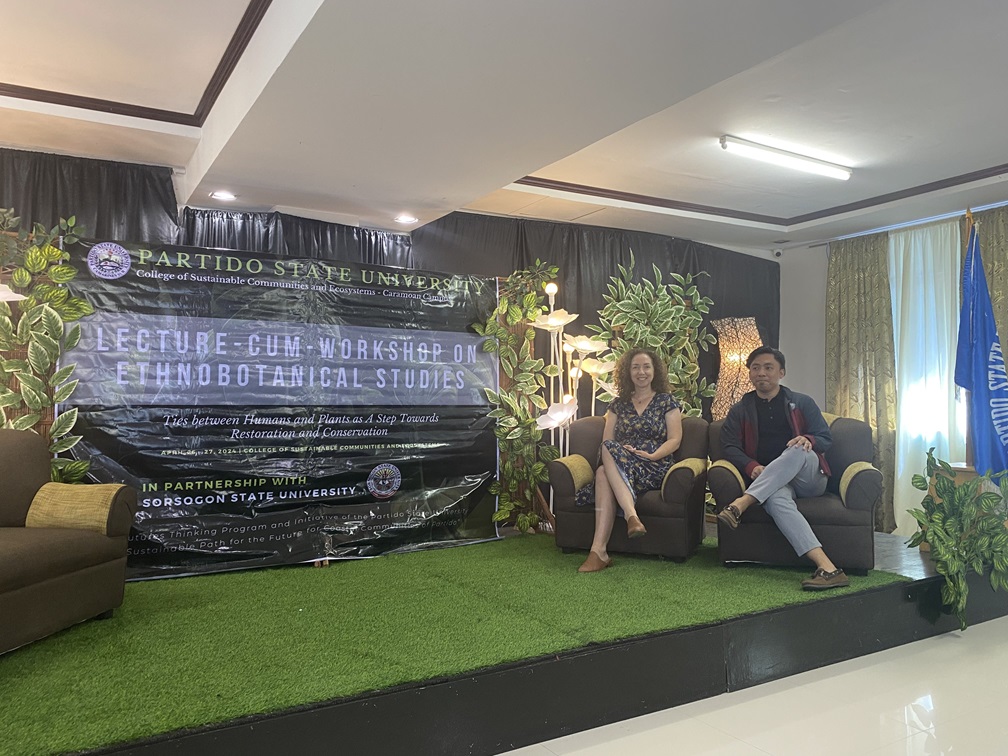
Dr. Hart-Fredeluces gave a lecture on the promise of ethnobotany: recognition of local knowledge, social justice, and sustainability. She discussed the type of ethnobotanical research, research ethics, ethnotaxa and classification, plant use, and sustainability. She also discussed the basics of ethnobotanical research, where she provided examples, purposes, and theories widely used in these fields of study.
Dr. Dumilag shared his individualized experiences of becoming a phycologist. He discussed a decade of his life as a seaweed taxonomist and the different institutions he's come from. He emphasized that his being a phycologist turned him into an evolutionist, an ecologist, a conservationist, and an ethnobotanist, and he provided technical advice to policy-makers.
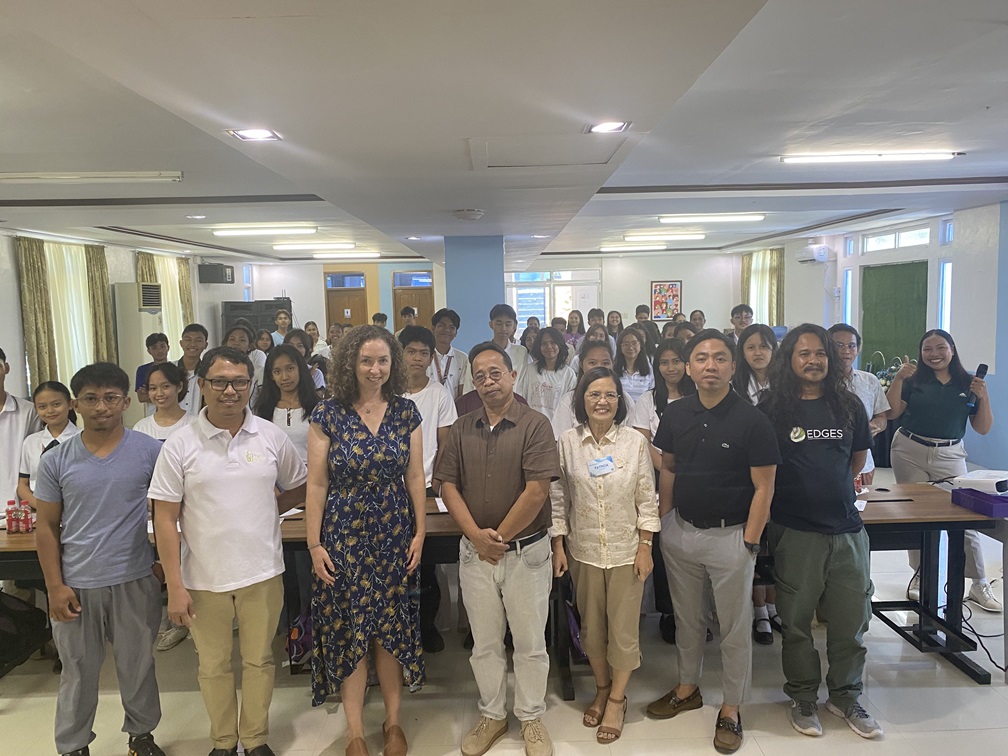
A workshop on applying qualitative and quantitative methods to understand human relationships with plants was also provided by Dr. Hart-Fredeluces. It consisted of lecture interviews, surveys and use-value, class practice, and research team formation and research planning. A live mock interview was conducted showing the participants how to respond to different scenarios that they can encounter during their data-gathering activity.
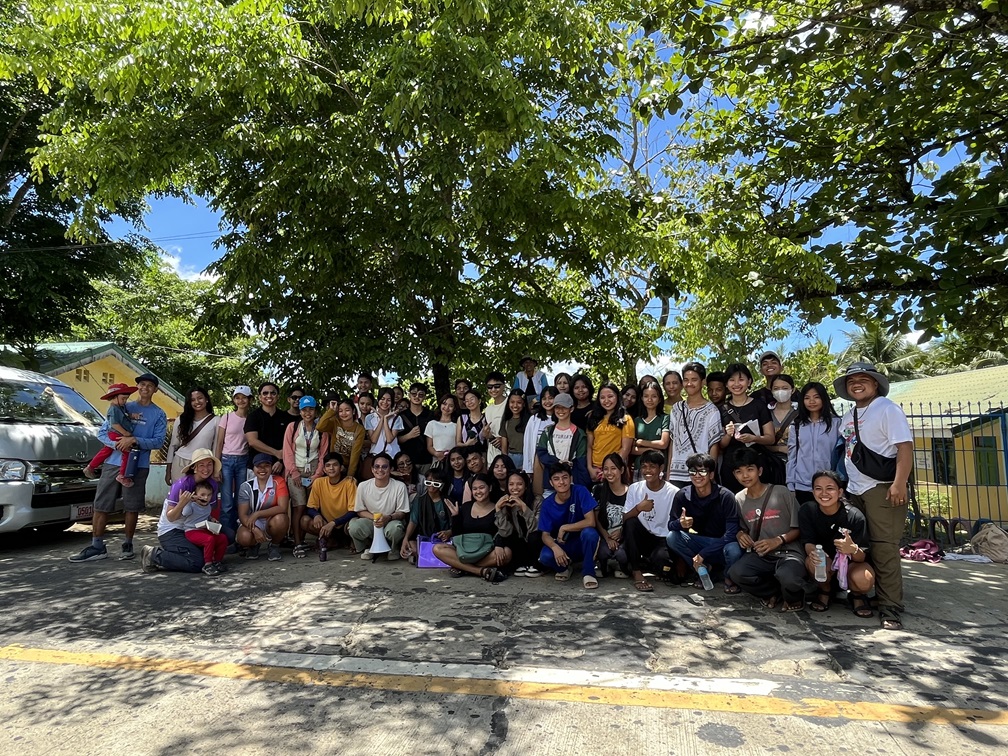
The two distinguished resource speakers facilitated the fieldwork held on the second day at Sitio Francisco, Barangay Bacgong, Caramoan, Camarines Sur. They conducted a pre-fieldwork lecture, highlighting the needed information to be collected by the students, including their topic of interest, research question, data collection method, data analysis, results, implications, and recommendations. Both of them led the conversation with the locals and facilitated the data gathering of the participants.
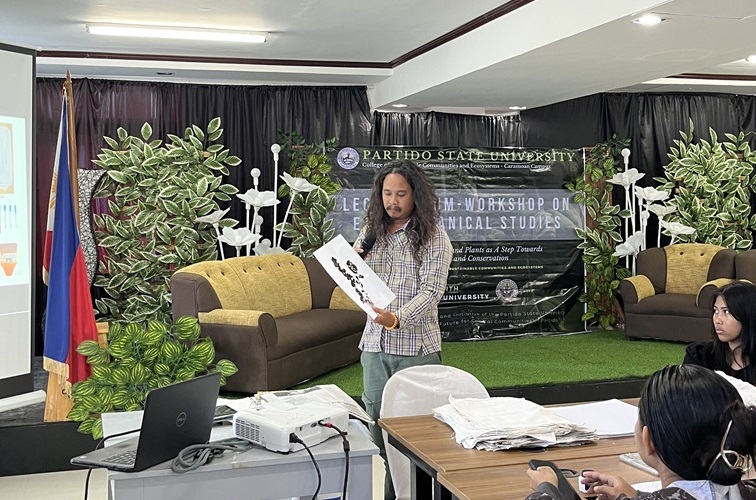 |
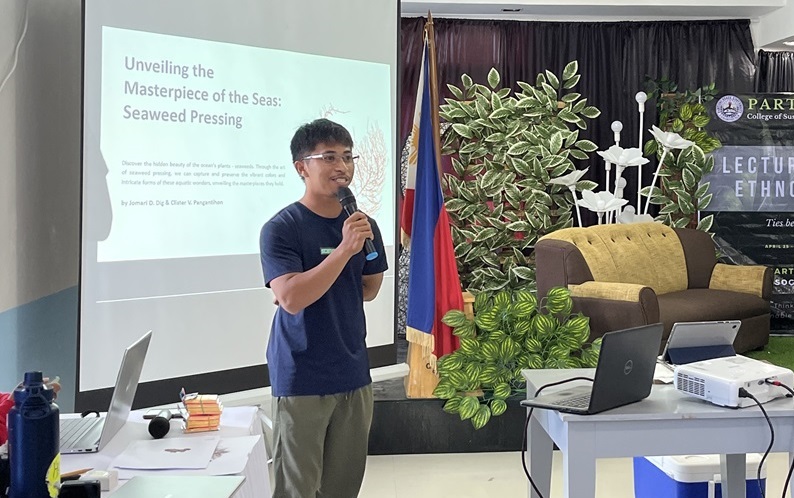 |
Pangantihon and Dig, URAs from SorSU, led the workshop on herbarium preparation on the third day. Participants also presented the results gathered from the fieldwork, where the resource speakers provided constructive questions and comments. Philippine flora cards with dedication were given to all participants as a token and souvenir for the three-day event.
The lecture-cum-workshop is the first of many research, extension, and collaboration endeavors of ParSU and SorSU, aiming to uplift the economic status and promote sustainable development in the Bicol Region.
The event is in line with the goals of the Futures Thinking Program and Initiatives of the University, which is to "promote sustainable behaviors among people, with these desired behaviors strategically integrated with science, culture, education, technology and the arts through capacity building."



